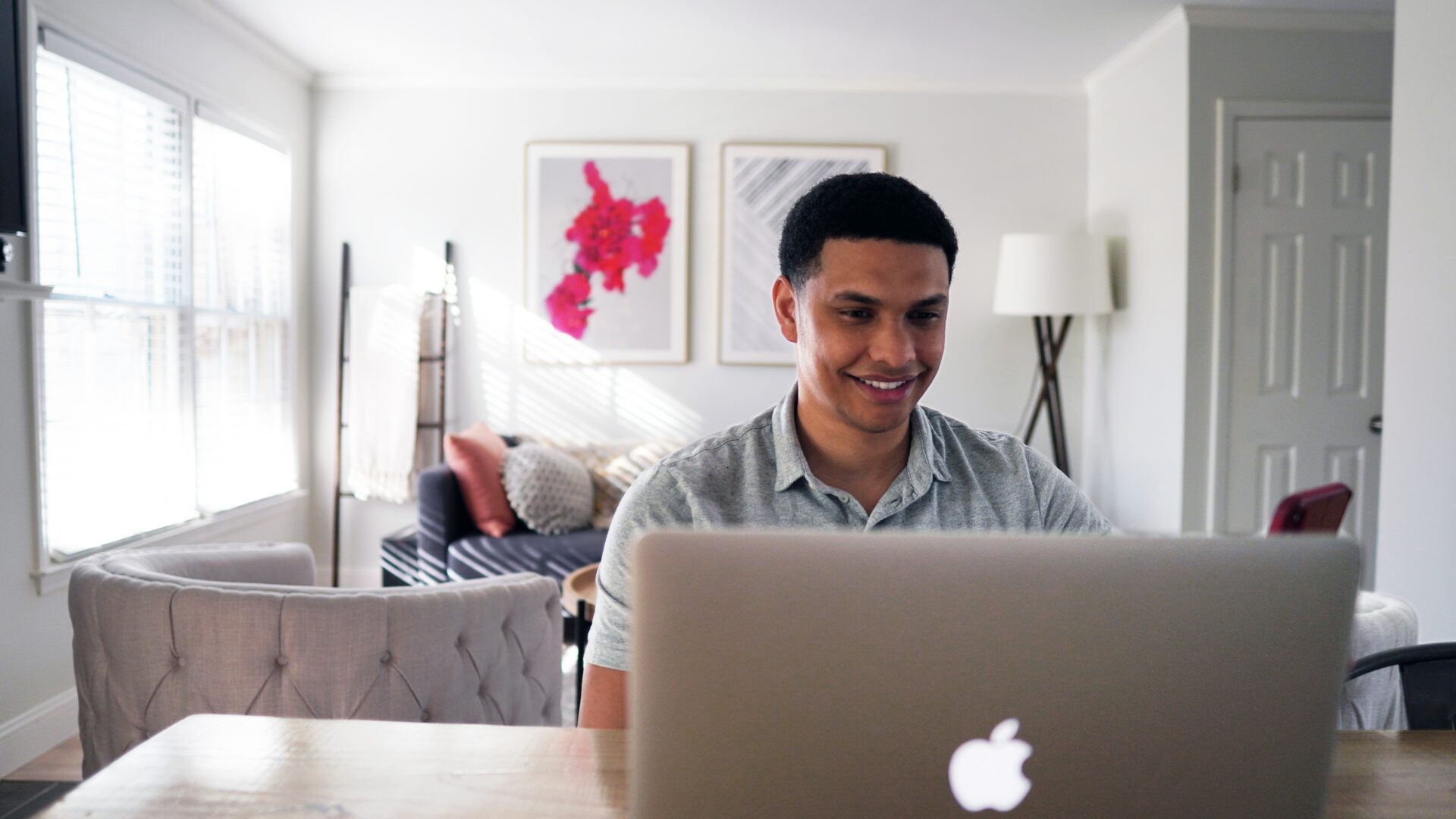Virtual interviews have become the go-to recruiting method of many employers since the start of the COVID-19 pandemic. With this, jobseekers have found themselves having to adjust to the new setting to show how they are the best candidate for the job they want. Workforce WindsorEssex’s Video Conference Job Interview Guide has some great tips for how to get ready for a virtual interview, such as pre-interview preparations.
In this entry, you can find some of the most important techniques to help you stand out from the crowd in the eyes of your future employer.
KEEPING UP APPEARANCES
Dress code
Business casual is a good metric to follow as a dress code; while it’s not uncommon to perform some remote work in casual attire, the dress expectations of virtual interviews are no different from in-person ones. Button-down tops without wrinkles, for example, will present you as a professional and collected to interviewers. Even though virtual interviews are typically from the waist-up, a pair of well-ironed or otherwise neat pants should still be worn.
Good Greeting
A brief, positive greeting and thanking to the interviewer for the opportunity helps set the tone for the interview and illustrates that you are excited to be there; virtual interviews may not have handshakes or other physical greetings, but this is quite helpful in achieving the same effect.
Phone Support
Provide your phone number in the event of technical difficulties; besides giving yourself another chance to be interviewed easily and without additional scheduling, this demonstrates preparation and drive to your interviewer that is easily visualized in a workplace setting.
BODY LANGUAGE
Eye Contact
Look directly into the camera you’re using for the interview; while it may feel unnatural, this is the same principle as keeping direct eye-contact during an in-person interview. You’ll be communicating a high level of confidence that interviewers will take into account positively, especially if they don’t always look into the camera themselves.
Posture
Maintaining proper posture will help with this as well; you’ll also feel more confident as you answer questions from the interviewer. This is especially helpful for reducing fidgeting or moving around during the interview.
Voice
Speaking clearly is among the most important things to keep in mind; not all speakers or headphones are made the same, so your interviewer should be able to understand what you’re saying no matter what they use.
TECHNICAL DIFFICULTIES
DIRECT
Be honest if you believe you’re experiencing technical difficulties; for example ask your interviewer to repeat themselves if you did not understand what they said. This will help resolve many issues as soon as possible, even if they slow down the interview a bit.
They Happen
Keep calm if technical difficulties arise; while this can seem embarrassing, interviewers are often very understanding of glitches that happen outside of your control because they’ve gone through these issues themselves. As suggested earlier, providing your phone number beforehand, or at the beginning of your interview, will also help give you and the interviewer peace of mind should this happen.
CONNECTING WITH YOUR INTERVIEWER
Small Talk
Engaging in conversation with the interviewer is often overlooked by candidates; while the interview is ultimately an opportunity to showcase your experience and skills, it is also where you can establish yourself as someone that is both professional and easy to work with. However, be mindful of time and ensure that it isn’t overbearing on their interview process; feel free to check in with your interviewer should you feel unsure if you are.
Hobbies
Relate to common interests if they come up; should your interviewer indicate an experience or hobby you share, feel free to ask them questions and offer your own experiences. As previously stated, be mindful of time and keep the conversations on neutral topics; like an in-person interview, politics and religion should be avoided unless they directly relate to your work or volunteer experience.
Thank You
Thank the interviewer for their time at the end of the interview; following up with a brief email to reiterate this and allow for follow-up questions is also recommended. By doing so, interviewers will have an even better sense of your drive and desire for the position as well as reinforcing the connection made with them.
Virtual interviews can be a tricky adjustment and may seem intimidating at first, but the above tips can help you demonstrate professionalism, motivation, and strong interpersonal skills to those conducting them.
Have any questions or any additional tips? Please contact: info@workforcewindsoressex.com
Taking Your Job Search Online is developed in partnership with South Essex Community Council and funded by United Way/Centraide Windsor-Essex County and the Government of Canada’s Emergency Community Support Fund.

